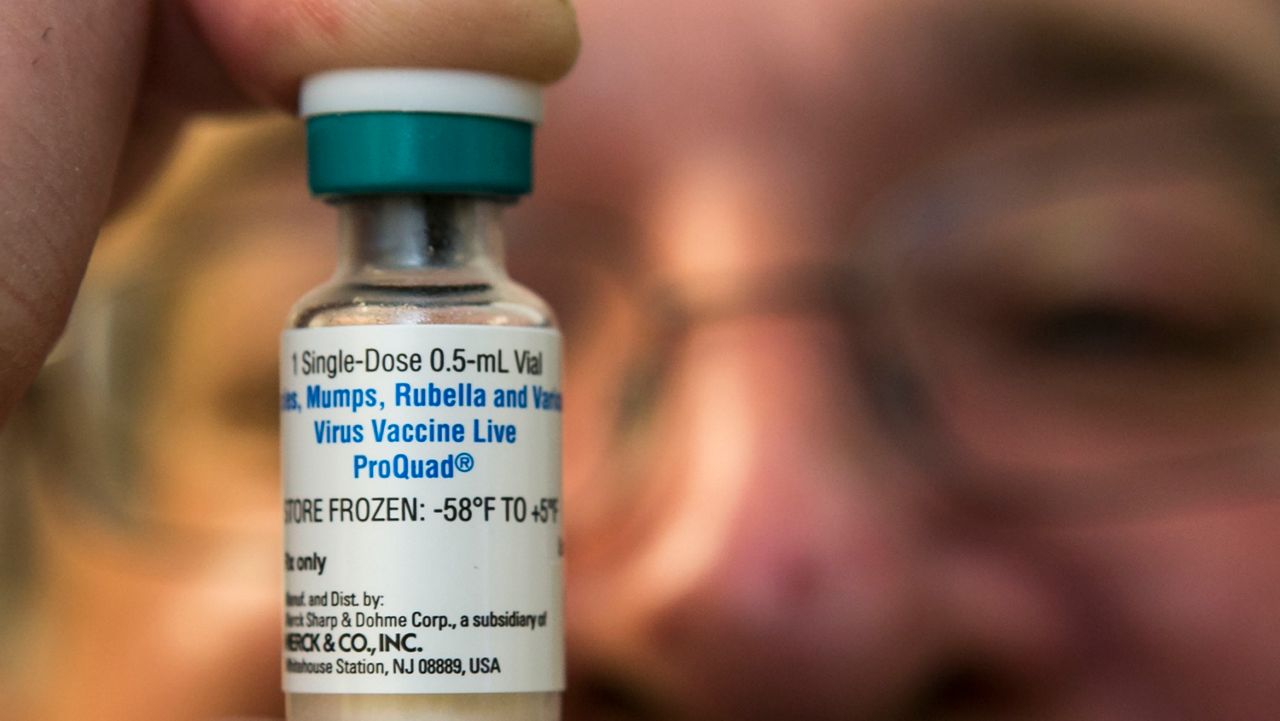SAN MARCOS — As anticipated, the number of cases of mumps has risen at Texas State University, Hays County confirmed Thursday.
- 2 cases of mumps confirmed at Texas State University
- Parents warned children possibly exposed to mumps at Texas Cheer Championship
Three are roommates and officials said they have not been able to identify a link between those three and the fourth student.
Three other students were tested due to suspicious symptoms, but they have come back as negative for mumps.
In early May, officials warned that the number could rise among students who are close friends.
Mumps is a viral illness that is highly contagious, but there is preventative vaccine. Symptoms of the illness include swollen salivary glands, swollen testicles, low-grade fever, fatigue, and muscle aches.
The spreading of mumps occurs through saliva or from respiratory droplets created when an infected person coughs or sneezes. The incubation time for symptoms to arise can take up to 25 days, but usually shows signs in 14 to 18 days.
People who have tested positive for mumps are contagious for three to five days after symptoms appear. However, the Texas Department of State Health Services said infected people can transmit the virus even without showing symptoms.
Mumps vaccines are given to children coupled with the measles and rubella vaccines at the age of 12 to 15 months.
The vaccine prevents most, but not all, cases of mumps and complications caused by the disease, the CDC said. People who have received two doses of the vaccine are about nine times less likely to get mumps than unvaccinated people who have the same exposure to mumps virus.
However, some people who receive two doses can still get mumps, especially if they have prolonged, close contact with someone who has the disease. If a vaccinated person does get mumps, they will likely have less severe illness than an unvaccinated person.
The county indicated that no other lab tests are pending that the local health department is aware of at this time.



